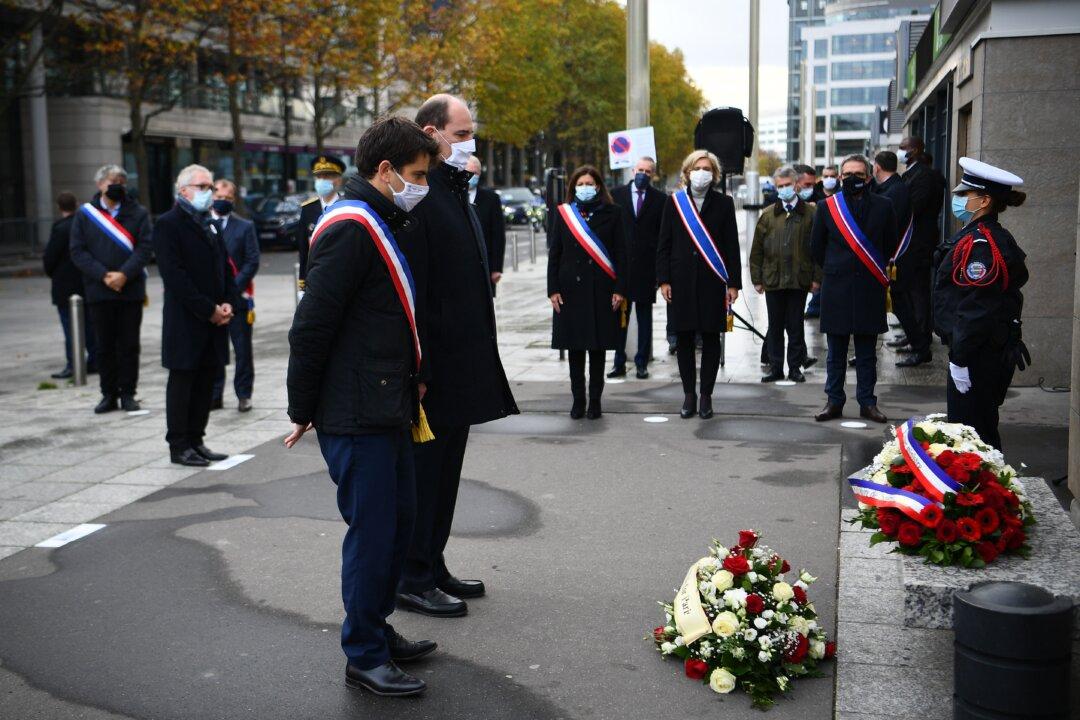France is commemorating the fifth anniversary of the 2015 terrorist attacks in Paris on Friday, as the country is once again on the highest security alert against Islamic terrorism.
On the night of Nov. 13, 2015, three teams of suicide bombers and gunmen launched coordinated attacks on multiple targets in Paris, hitting bars, restaurants, the national stadium, and the Bataclan concert hall, leaving 130 people dead and hundreds more injured, in what became France’s deadliest ever peacetime attack.





